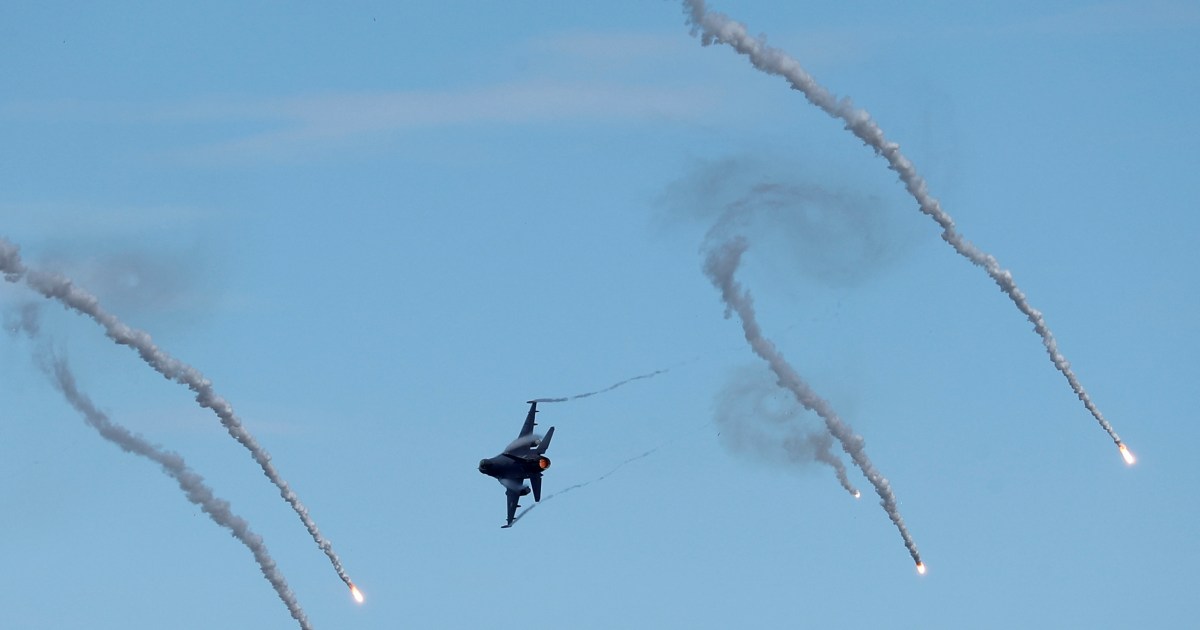China pushed more of its fighters into the Taiwan air defense zone on Wednesday, in an escalation of the show of force around the island that China considers part of its territory, and Taiwan's foreign minister said his country would fight to the end if China attacked it.
Taiwan complained about the repetition of Beijing's military activities over the past few months, as the Chinese air force incursions almost daily into the Taiwan air defense limitation area.
China said on Monday that an aircraft carrier group was conducting exercises near the island.
The Taiwan Defense Ministry said that 15 Chinese aircraft, including 12 fighters, entered the air defense zone, and that an anti-submarine plane flew south through the Bashi Channel between Taiwan and the Philippines.
She added that the Taiwan Air Force had pushed planes to intercept and remove the Chinese planes.
Earlier in the day, Taiwan's Foreign Minister Joseph Wu said the United States was concerned about the prospect of conflict.
"According to my limited understanding of the American decision-makers who are monitoring developments in the region, it is clear that they see the danger of the possibility of China launching an attack on Taiwan," he told reporters at the ministry’s headquarters.
"We are undoubtedly ready to defend ourselves, and we will go to war if we have to. If we have to defend ourselves to the end, we will defend ourselves to the end," he added.
China says its activities around Taiwan are aimed at protecting Chinese sovereignty.
The United States has expressed concern about China's moves, and said its commitment to Taiwan is "rock solid."
Neither Taiwan nor China specifically mentioned the exact location of the war group, which is conducting an aircraft carrier-led exercise near the island, or whether it is heading to the disputed South China Sea, where an American warship group led by an aircraft carrier is currently located.
An American move
On the other hand, the US Navy announced that the "John S. McCain" destroyer, which carries guided missiles, crossed the Taiwan Strait in a "routine" move, as part of the US commitment to freedom of navigation in the Indian and Pacific Oceans.
"The US military will continue to fly, sail, and operate wherever international law permits," the Navy said in a statement.
Washington - the most important international supporter and supplier of weapons to Taiwan - has pushed Taipei to modernize its military so that it is difficult for China to threaten it.
Taiwan's foreign minister said his country is determined to improve its military capabilities and spend more on defense.
"It is our responsibility to defend Taiwan. We will try by every means to improve our defense capabilities," he added.
Philip Davidson, commander of US forces in the Indian and Pacific Oceans (Indopam), warned last month that China might invade Taiwan within 6 years.
"I fear that the Chinese will accelerate their project aimed at replacing the United States (as the largest military power in that region) by 2050," the leader of "Indopam" said during a hearing before a committee in the US Senate.
For the leader of Endopam, "it is clear that Taiwan is part of their ambitions, and I think the threat is obvious in the next decade, but in fact in the next six years," that is, by 2027.

